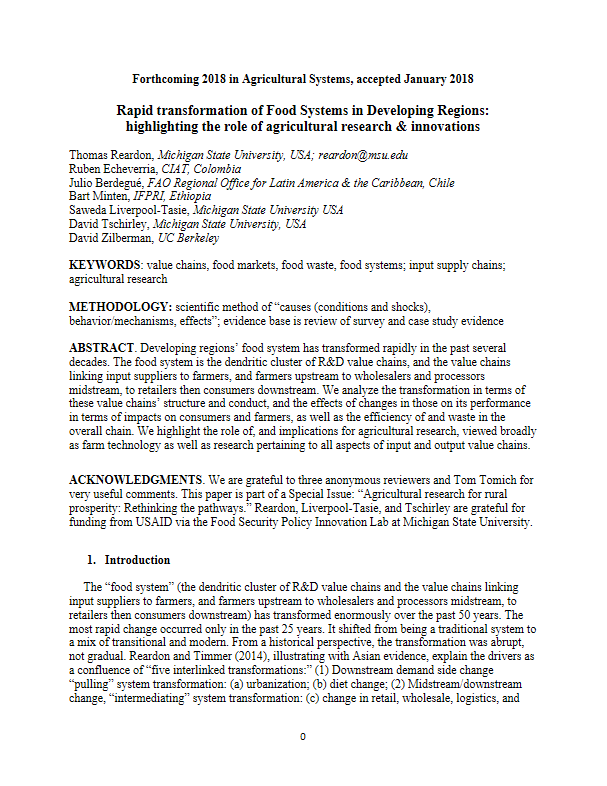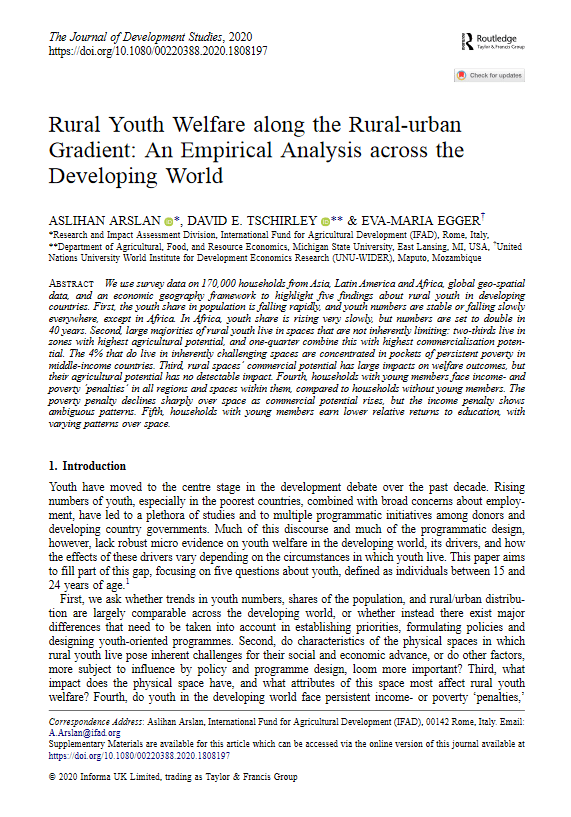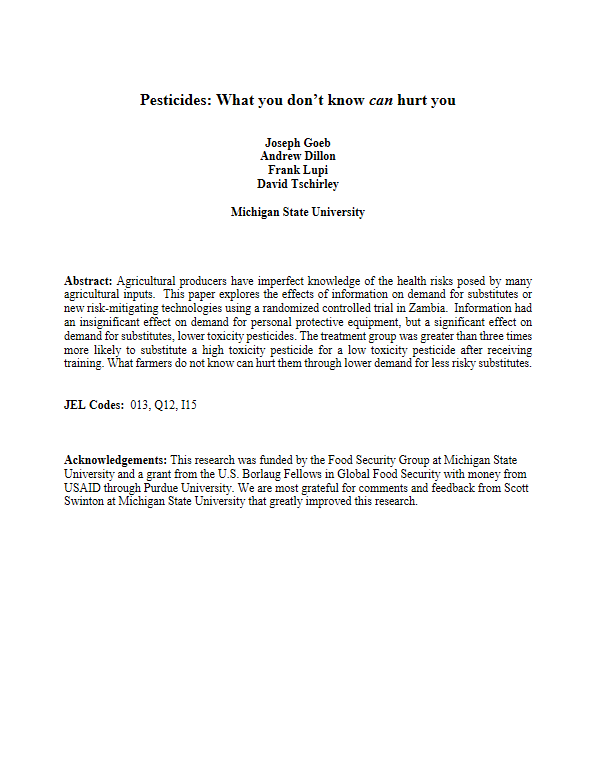︎

David Tschirley
Michigan State University, Department of Agricultural, Food, and Resource Economics
David Tschirley is fixed-term professor of International Development in the Department of Food, Agricultural, and Resource Economics at Michigan State University, and Co-Director of the department’s Food Security Group. He is also a member of the Core Technical Team of MSU’s Global Center for Food Systems Innovation. His work emphasizes three main areas: 1) agrifood system transformation in Africa focusing on diet change and its implications over a range of policy and programmatic issues, including employment; 2) the intersection of food aid, staple food markets, and emergency response, including extensive work on monetization, local and regional food aid procurement, and the role of food trade and government policy in emergency response, and 3) institutional approaches to linking smallholder farmers to cash crop markets such as cotton and fresh produce.
MORE ABOUT DAVID TSCHIRLEY >Jan 1, 2019
Thomas Reardon, Ruben Echeverria, Julio Berdegué, Bart Minten, Saweda Liverpool-Tasie, David Tschirley, David Zilberman
Rapid transformation of food systems in developing regions: Highlighting the role of agricultural research & innovations
Developing regions' food system has transformed rapidly in the past several decades. The food system is the dendritic cluster of R&D value chains, and the value chains linking input suppliers to farmers, and farmers upstream to wholesalers and processors midstream, to retailers then consume...

Jan 1, 2020
Aslihan Arslan, David E. Tschirley, Eva-Maria Egger
Rural Youth Welfare along the Rural-urban Gradient: An Empirical Analysis across the Developing World
We use survey data on 170,000 households from Asia, Latin America and Africa, global geo-spatial data, and an economic geography framework to highlight five findings about rural youth in developing countries. First, the youth share in population is falling rapidly, and youth numbers are stable or fa...

Jan 1, 2020
Joseph Goeb, Andrew Dillon, Frank Lupi, David Tschirley
Pesticides: What You Don’t Know Can Hurt You
Agricultural intensification can negatively affect farmer and social welfare through health and environmental externalities if producers have imperfect knowledge of the risks posed by agricultural inputs. This paper explores the effects of health-risk information on the demand for substitutes in the...

